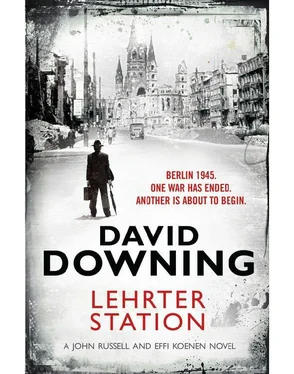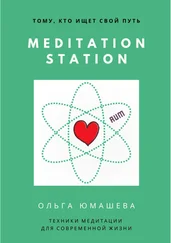David Downing - Lehrter Station
Здесь есть возможность читать онлайн «David Downing - Lehrter Station» весь текст электронной книги совершенно бесплатно (целиком полную версию без сокращений). В некоторых случаях можно слушать аудио, скачать через торрент в формате fb2 и присутствует краткое содержание. Жанр: Шпионский детектив, на английском языке. Описание произведения, (предисловие) а так же отзывы посетителей доступны на портале библиотеки ЛибКат.
- Название:Lehrter Station
- Автор:
- Жанр:
- Год:неизвестен
- ISBN:нет данных
- Рейтинг книги:5 / 5. Голосов: 1
-
Избранное:Добавить в избранное
- Отзывы:
-
Ваша оценка:
- 100
- 1
- 2
- 3
- 4
- 5
Lehrter Station: краткое содержание, описание и аннотация
Предлагаем к чтению аннотацию, описание, краткое содержание или предисловие (зависит от того, что написал сам автор книги «Lehrter Station»). Если вы не нашли необходимую информацию о книге — напишите в комментариях, мы постараемся отыскать её.
Lehrter Station — читать онлайн бесплатно полную книгу (весь текст) целиком
Ниже представлен текст книги, разбитый по страницам. Система сохранения места последней прочитанной страницы, позволяет с удобством читать онлайн бесплатно книгу «Lehrter Station», без необходимости каждый раз заново искать на чём Вы остановились. Поставьте закладку, и сможете в любой момент перейти на страницу, на которой закончили чтение.
Интервал:
Закладка:
It wasn’t just an end to the suspense. The war in Europe had been over for six months, and the Nazis, who had dominated their lives for a dozen years, were passing into history, but all their lives — his and Effi’s in particular — had still seemed stuck in some sort of post-war limbo, the door to their future still locked by their particular past. And Shchepkin’s invitation might — might — be the key that would open it.
Monday morning was unusually crisp and clear, columns of smoke rising from a hundred chimneys into a clear blue sky as Russell walked down Kentish Town Road. There were long lines outside the two bakeries he passed, but most of the queuing women seemed happy to chat while they waited.
It had been a strange weekend. On Saturday morning he had taken the gun to the local police station, and been asked to peruse an alarmingly extensive array of juvenile mug shots. He hadn’t recognised his and Effi’s would-be robbers, who had presumably just set out on their new career of crime.
That afternoon the whole family had gone for a walk on the nearby Heath, but their collective mood had matched the grey weather. Paul and Lothar kicked around the latter’s new football — one of Zarah’s acquisitions from their street’s resident spiv — but only the youngster looked like he was enjoying the experience. Effi still seemed subdued by the previous evening’s excitement, and Rosa, as usual, responded to her new mother’s mood. Only Zarah seemed determined to be cheerful, and after what she’d been through with the Russians — repeatedly raped by a Red Army foursome for three days and nights — Russell could only admire her for that.
Sunday the rain had come down, and they’d tiptoed around each other in the crowded flat, waiting for the weekend to end.
At least today was fine, and the long walk into town could be enjoyed for more than the saving of the bus fare. It took him half an hour to reach the Corner House opposite Tottenham Court Road tube station, where he had lately taken to having his morning coffee. It was a far cry from Kranzler’s in Berlin — the decor was dreadful, the coffee worse — but a ritual was a ritual. A journalist had to read the papers somewhere, even one who was out of work, and he had grown used to the Corner House’s heady blend of non-stop bustle, sweat and steam.
As usual, he began with the more digestible News Chronicle. Remembering he would soon see them play, he sought out the latest news of the Soviet footballers. The Sunday papers had been unimpressed — one witness of a training session at the White City had deemed them ‘so slow that you can hear them think’ — and the Monday Chronicle seemed of similar mind. Russell didn’t know what to expect. Stalin’s Russia seemed an unlikely source of imaginative football, but the English had a notorious propensity to over-estimate their own prowess. It would be interesting, if nothing more. A nice sugar-coating for whatever pill the Soviets had decided he should swallow.
The rest of the paper held no surprises. There was advice for demobbed husbands returning home — ‘be glad to be back, say so as often you can’ — and another child drowned in an emergency water tank. In Yorkshire three young women had been sacked from their jobs for refusing to swap their slacks for skirts.
The front page was full of the Prime Minister’s visit to Washington. Attlee was apparently asking the Americans to share their atomic secrets with the Russians, and their wealth with an impoverished Britain. The Americans seemed more interested in persuading him to abandon his policy of imposing restrictions on Jewish emigration to Palestine.
There was nothing to match Russell’s favourite revelation of the last few days, that Eva Braun’s father had written to Hitler before the war, demanding to know the Fuhrer’s intentions. Having never received a reply, Herr Braun now believed that his letter had not reached its intended recipient.
What other explanation could there be?
Turning to the weightier Times, Russell found some Berlin news. A ‘Battle of Winter’ had been proclaimed, which sounded rather ominous, and involved cannibalising badly damaged buildings for those with a better chance of being patched up. Meanwhile owners of slightly damaged buildings had been given a year to claim compensation. This would interest Effi, whose building on Carmerstrasse had still been essentially intact when they last saw it.
The Soviets had celebrated the anniversary of Lenin’s revolution by handing out gifts: a small sack of coal for each human resident, and extra food for the lions, elephant and hyena who had survived the shelling of the Zoo. And should this seem like small change for raping half the city’s women, they had also unveiled a memorial to the liberating army. Anyone expecting a keener sense of irony from the nation of Gogol would be disappointed.
It was almost time for his meeting with Solly. Leaving the Corner House, he walked down Charing Cross Road, checking the windows for any new books. Solly Bernstein’s office on Shaftesbury Avenue had survived the Blitz, but the ground floor steam laundry of pre-war days was now an insurance office. Russell walked up the four flights of stairs to the second floor, paused to recover his breath, and let himself in. Solly had a receptionist these days — a waif-like Hungarian refugee named Marisa with dark, frightened eyes and a very basic grasp of English. Told that Mr Bernstein was ‘engage-ed’, Russell found his son in the smaller of the two back rooms, bent over what looked like the firm’s accounts. Given Paul’s emotional state at the time, Solly’s offer of a job had been somewhat charitable, but the boy seemed to be managing all right. And his English had improved no end.
The two of them talked football while Russell waited for Solly, and Paul expressed an interest in seeing the Russians’ second game in London, against the Arsenal. The Gunners’ bomb-damaged ground at Highbury was still under repair, so they were hosting the Dynamos at nearby White Hart Lane on the following Wednesday.
He’d try and get some tickets, Russell told his son. He could ask Shchepkin when he saw him at Stamford Bridge.
Marisa put her head round the door, smiled sweetly at Paul, and told Russell he could now see Solly. The agent’s news proved as bad as Russell had expected — all his recent ideas for feature articles had been rejected. Solly himself looked older than usual, his hair a little greyer, his eyes a little duller. As usual, he spent ten minutes telling Russell that he should take a break from journalism, and use the time to write a book. His escape from Germany in December 1941, Effi’s adventures with the Berlin resistance — either, in Solly’s not-so-humble opinion, would sell like fresh bagels. He was probably right, but the idea was still unappealing. Russell was a journalist, not a writer. And while an unsuccessful book would do nothing for his finances, a successful one might raise his profile to a dangerous degree. And what would he live on while he wrote it?
He said goodbye to Paul, walked back down to the street, and stood on the pavement outside wondering what to do with the rest of the day. More walking, he supposed, and set off in the general direction of the river. If the Soviets had no immediate plans for him perhaps he would give the book a try; at least he would be doing something. The world of journalism certainly seemed closed to him. The British nationals and London locals had no vacancies, and should one arise his American citizenship — acquired to allow his continued residence in Germany once Britain and the Reich were at war — was bound to complicate matters. As were other chunks of his personal history. His time living in Nazi Germany made the left suspicious, and his former membership of both British and German communist parties had a similar effect on those with right-wing sympathies. If editors needed a further excuse for rejecting him, they could always point to his long exile and its obvious corollary, that he was out of touch with British life. Russell always denied this, but without much inner conviction. He did often feel a stranger in the land of his birth and childhood. If he wanted to function as a journalist again, then Berlin was the place to do so.
Читать дальшеИнтервал:
Закладка:
Похожие книги на «Lehrter Station»
Представляем Вашему вниманию похожие книги на «Lehrter Station» списком для выбора. Мы отобрали схожую по названию и смыслу литературу в надежде предоставить читателям больше вариантов отыскать новые, интересные, ещё непрочитанные произведения.
Обсуждение, отзывы о книге «Lehrter Station» и просто собственные мнения читателей. Оставьте ваши комментарии, напишите, что Вы думаете о произведении, его смысле или главных героях. Укажите что конкретно понравилось, а что нет, и почему Вы так считаете.












